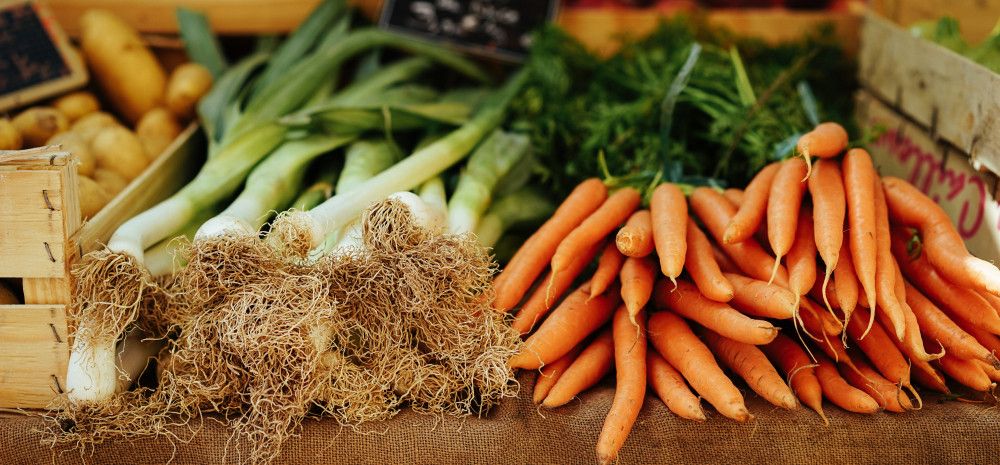
Springvale Urban Harvest is a free monthly event that supports the growing of food locally, food knowledge and good nutrition. Come along to swap excess homegrown produce and gardening extras and meet like-minded growers in the area.
Springvale Urban Harvest operates on the second Saturday of the month (excluding January) and is supported by The Greater Dandenong Seed Library and the Springvale Community Hub Clothes Swap.
What can be swapped?
- Home-grown fruit and vegetables
- Seeds you’ve saved, seedlings and cuttings you’ve raised (edible only)
- Share your gardening tips, exchange skills, stories and recipes
- Gardening goodies (coffee grounds, worm juice, etc.)
- Copies of your favourite seasonal recipe
- Gardening magazines or gardening books you’ve read
If you require additional assistance to participate, please get in contact with us.
Second Saturday of every month, 1pm-3pm
10 February (different time 11am-2pm)
9 March
13 April
11 May
8 June
13 July
10 August
14 September
12 October
9 November
14 December
No registrations required
Do I need to label my items?
All items that are eligible to be swapped must have a label that indicates what the food is, who grew it and how far it travelled to the swap e.g Italian Parsley, John Smith, Keysborough
We also encourage people to learn about food safety by visiting the Department of Health
Do I need to be concerned about land contamination?
When sites are redeveloped from industrial use to residential development, an environmental audit must take place as part of Planning permission. This helps ensure that the land is suitable for its proposed use.
Some houses, however, were built before this element of Planning law was in place. In addition, some products no longer in use, such as asbestos and lead paint, may have contaminated the soil at some sites.
This means land contamination in residential areas can be is common. Handling soil is the main way most people can come into contact with contaminated land in their yards. This happens when people swallow or breathe in small amounts of soil or dust.
Plants and chickens may also take up some contaminants. This can mean lead to contaminants ending up in fruit, vegetables or eggs.
How can I reduce the risk of exposure to contamination in residential spaces?
To understand your risk, consider where you live.
Lead paint and asbestos contamination is more likely in older houses’ yards. Lead contamination is also more likely in yards closer to major roads. Houses in the Goldfields region areas where there was gold mining or prospecting may have arsenic in the soil from historic mining activity.
Soil in urban centres may have small concentrations of PFAS, heavy metals, petroleum and hydrocarbons. Houses on land formerly used for farming may have pesticide contamination.
Some tips on how to minimise risk include:
- Wear gloves when gardening.
- Brush down shoes before walking back into your home.
- Replace garden soil with clean fill. Consider placing clean fill in areas that house chickens, or where they graze.
- Consider growing vegetables in raised garden beds. These should have hardwood frames, not treated pine frames. Make sure raised garden beds have a layer of material that allows water to drain. Fill raised garden beds with clean soil sourced from off site.
- Wash all vegetables grown in your yard before eating them.
- Wash hands after working or playing in yards and before eating. This especially applies to children.
How can I test my soil?
You can purchase a soil testing kit from garden or home supply stores, or alternative you can register with GardenSafe a soil screening program run by the Citizen Science team at Environment Protection Authority (EPA) Victoria. The one-year pilot aims to equip community with the knowledge and resources they need to understand backyard soil quality.
GardenSafe invites Victorians to send 3 garden soil samples for assessment. We will screen your sample for:
Garden soil quality indicators, including soil composition, organic carbon, and soil nutrients phosphorus and potassium.
Trace elements, including lead, arsenic and chromium.
In return, you will receive a personalised report with the results from your garden. We’ll also provide you with tools to understand your results and ways to reduce harm from pollution and waste.
The findings from GardenSafe will help to build EPA Victoria’s understanding of contamination, especially in urban areas.
Visit the GardenSafe website to learn more about this program.
Useful Links
Department of Health - Food Safety information
Food safety (health.vic.gov.au)
Environmental Protection Authority Victoria (EPA)
www.epa.vic.gov.au
Community Gardens within City of Greater Dandenong
Community Gardens | Greater Dandenong Council
Town Planning – City of Greater Dandenong
Planning Advice | Greater Dandenong Council